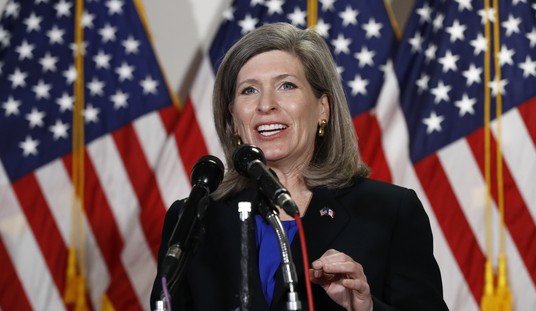Has Team Biden taken a realistic approach to a primary calendar front-loaded with small, unrepresentative states for Democrats? Or has Joe Biden morphed into Chip Diller just as the Faber College parade turns into a stampede?
Mainly the former, at least for now. But the latter may not be all that far off:
Biden came in fourth in the Iowa caucuses and fifth in the New Hampshire primary. No candidate who performed so poorly in the first two states has gone on to become the Democratic nominee. His message going forward so far is that drawing conclusions about the end of his campaign silences black voters — arguably the most influential voting bloc in the Democratic Party.
“We’re moving into an especially important phase because up until now, we haven’t heard from the most committed constituency of the Democratic Party — the African American community — and the fastest-growing segment of the society — the Latino community,” he said Tuesday at a rally. “So when you hear all the pundits and experts and cable TV talkers talk about the race, tell them, ‘It ain’t over, man. We’re just getting started.’”
On a conference all with reporters Wednesday, Rep. Cedric L. Richmond (D-La.), Biden’s campaign co-chairman, argued that the momentum some candidates are experiencing won’t carry them through to Nevada and South Carolina.
“I wouldn’t trade positions with anybody else in the race,” said Richmond, a member of the Congressional Black Caucus. “Let’s imagine if the states were in the reverse order. . . . This whole conversation would be different. So I don’t believe that the momentum here relates and carries forward, because we’re in different states, different demographics.”
To some extent, this is true. Democrats have long complained about opening in Iowa and New Hampshire, especially of late as identity politics becomes more central to their electoral pitch. That’s not quite what Biden’s doing with African-American voters — he’s not billing himself as a Clintonian “black president” candidate — but it’s close enough to matter in this instance. The current primary schedule handicaps them in pushing one of their main themes, and if you count Nevada, it handicaps them for three weeks. That’s the main reason for complaints about the “representative” nature of the early states.
The argument for front-loading these states is that they are small enough to require the kind of personal-retail politicking that allows them to cull the field. That didn’t work out so well this time, did it?
Still, this is a thin cover for a very bad performance out of the gate for Biden. He might not have had his optimal demographic mix in Iowa and New Hampshire, but it’s not as though he just came up a bit short of victory in either state. Biden was the former VP of a very popular administration and a long-time party leader, and yet he couldn’t do better than fourth or fifth place in states he carried on the ticket with Barack Obama. He finished ten points behind the mayor of South Bend in New Hampshire, for Pete’s sake … pardon the pun.
That should be some reason for panic, but Team Biden wants to shift the panic focus to who’s winning rather than who’s losing:
Shellshocked by two big losses, Joe Biden’s presidential campaign tried to reassure donors, surrogates and the press about his path forward Wednesday while counterattacking nearly every one of his rivals.
“Elected officials across the country understand there will be down-ballot carnage to the Democratic Party if we elect the wrong person,” Rep. Cedric Richmond, the campaign’s co-chair, warned. “If Bernie Sanders were atop of the ticket, we would be in jeopardy of losing the House, we would not win the Senate back.”
Richmond, a member of the Congressional Black Caucus, also took aim at Pete Buttigieg and Amy Klobuchar for their anemic support among African Americans and criticized billionaire Michael Bloomberg for having been a Republican.
In separate calls arranged with donors, reporters and surrogates, his campaign leadership emphasized Biden’s support among African American and Latino voters and cast his losses in New Hampshire on Tuesday and in Iowa Feb. 3 as less-than-lethal because of their predominantly white electorates. They also laid out plans to put Biden on television to elevate his national visibility.
Biden’s message of status quo ante nostalgia isn’t working out so well. A new message as the Guardian Against the Socialist Horde might, especially because that anxiety is getting wider among Democrats these days. There are other options for that — Amy Klobuchar attempted to carve out her own niche in this lane last week in New Hampshire — but probably none so potentially able to succeed at it.
That may take him farther than his demographic argument. If it’s identity politics on which Biden’s counting to salvage himself and stop Bernie Sanders, NBC has some bad news for him:
Latinos contributed almost $23.7 million to Democratic presidential candidates last year, much of it in small-dollar donations averaging $15.75, according to an in-depth analysis of campaign finance data by Plus Three, a technology company that researched Latinos’ contributions to Democratic presidential candidates.
It shared its latest findings with NBC News ahead of their release.
According to the data, Sanders, an independent senator from Vermont, dominates in the race for Latinos’ dollars, snagging $8.3 million in 2019, or 36 percent of all contributions. Sanders leads in just about every state, except Sen. Amy Klobuchar’s home state, Minnesota, where she beats him by about $3,000. He also leads in most major cities.
The analysis also finds that, as candidates leave the race, Latino contributions aren’t yet shifting to other candidates. Candidates don’t appear to be trying to scoop up donors who endorsed their rivals, and Latino contributions are slowing.
Biden’s people-of-color firewall may not hold up as well as he thinks, in other words. All is decidedly not well, at the very least. The stampede is closer than you imagine, Chip.







Join the conversation as a VIP Member